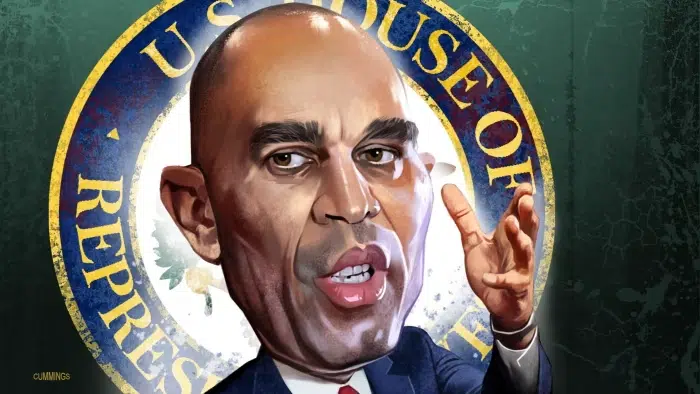
Could New York Attorney General Letitia James Become the Next Marilyn Mosby?
In an attempt to get a lower mortgage rate on a vacation home in Longboat Key, Florida, one controversial elected prosecutor in a major U.S. city drafted a letter to United Wholesale Mortgage. At closing, the prosecutor signed the application for the $428,400 mortgage and attested to the accuracy of her answers in the application.
The problem?
She had not lived in Florida as she had claimed. She failed to disclose all her liabilities. She failed to disclose that she was delinquent in paying her federal taxes and that the IRS had a $45,022 tax lien against her. And the gift letter she provided to the mortgage company was also false.
Five months earlier, in an attempt to purchase a rental property in Kissimmee, Florida, the same prosecutor signed an application for a $490,500 mortgage from Cardinal Financial Co. According to the government, the prosecutor made knowingly false statements by not including all of her liabilities in the application, not disclosing the IRS lien or the fact that she was delinquent in paying federal taxes. She also did not disclose that she intended to use it as a rental property, having signed a rental agreement with a management company the week before she signed her closing documents for the loan.
The prosecutor claimed that the charges against her were politically motivated and a witch hunt by her political adversaries.
The Biden Justice Department indicted her for the two alleged instances of mortgage fraud described above, along with other charges, including two counts of perjury.
The jury acquitted her on the charge related to the Kissimmee house, but convicted her on the Longboat Key count. In a separate trial, she was convicted on two counts of perjury related to her conduct.
The prosecutor’s name was Marilyn Mosby. She was the Baltimore City state’s attorney. In May of 2024, she was sentenced to 12 months of home confinement and three years of supervised probation.
Does a similar fate await another prominent prosecutor?
In an attempt to get a lower mortgage rate, this second elected prosecutor allegedly gave her power of attorney to someone who, on her behalf, claimed that a home she wanted to purchase in Norfolk, Virginia, would be her primary residence. She affirmed in a Federal Housing Finance Agency Form 3047 that the modest home would be her primary residence.
There is nothing wrong with using a power of attorney, and certainly nothing wrong with moving to Norfolk, Virginia, home to the largest U.S. Navy base. She purchased the home in 2023.
So, what’s the problem?
She could not be a Virginia resident and the attorney general of her state at the same time. Why? Under her state’s constitution, to be eligible to hold the office of state attorney general, a person must be not less than 30 years of age and have been a resident of that state in the five years preceding election to office. The prosecutor met the age requirement when she ran for office in 2018 and was a resident of the state from the day she was born in October 1958.
According to a letter by the director of the Federal Housing Finance Agency to the Trump Justice Department last week, this attorney general listed her residence, as of July 15, 2024, as an address in New York.
To add another potential legal headache, the prosecutor purchased a five-family dwelling in New York in February 2001. The certificate of occupancy, issued the previous month, lists the property as having five units. So far, so good.
The problem?
According to the referral letter to DOJ, the prosecutor “secured a conforming loan” through Federal Housing Finance Agency Form 3033, which is designed for structures of four units or less. Since 2001, this prosecutor has asserted in official documents, including a building permit, mortgage documents, and in 2019, a mortgage refinancing document, that the property only has four units.
What’s the big deal whether it’s four units or five when it comes to government-backed loans? A lot. Building units that have five or more units usually require a larger down payment and include higher interest rates, sometimes as much as one percent higher, which can translate into hundreds or even thousands of dollars more per month. You don’t have to be a lawyer to know that. But you would definitely know that if you were a state attorney general.
The second prosecutor is, of course, New York Attorney General Letitia James.
That same Letitia James who, as a candidate for office, promised voters that if elected, she would prosecute then-former President Donald Trump. And this is the same Letitia James who, once elected, filed a civil fraud case against Trump for inflating the value of his real estate properties in order to receive better loan and insurance rates.
On April 14, 2025, William J. Pulte, the director of the U.S. Federal Housing Finance Agency, the regulator of Fannie Mae and Freddie Mac, sent a criminal referral to Attorney General Pam Bondi and Deputy Attorney General Todd Blanche, alerting them to James’ alleged mortgage fraud.
Oddly enough, Pulte also claims that in 1983 James and her father signed mortgage documents stating that they were husband and wife to better secure a mortgage.
Pulte’s letter states that “such misconduct jeopardizes the safety and soundness of FHFA’s regulated entities and the security and stability of the U.S. mortgage market.”
Echoing Mosby, James claimed in a recent interview that the allegations against her are “baseless” and “nothing more than a revenge tour.” However, she declined to provide any details.
Will James face criminal charges like Mosby? Whether the Justice Department decides to pursue this matter is an open question.
James, like all potential criminal defendants, is presumed innocent unless and until proven guilty beyond a reasonable doubt by legal and competent evidence in a court of law.
But the irony here is too rich to ignore. The very person who pursued Trump for falsifying business records might have done so on several occasions herself, proving, once again, that people who live in glass houses shouldn’t throw stones.
A lesson James should have learned from the downfall of Mosby.



